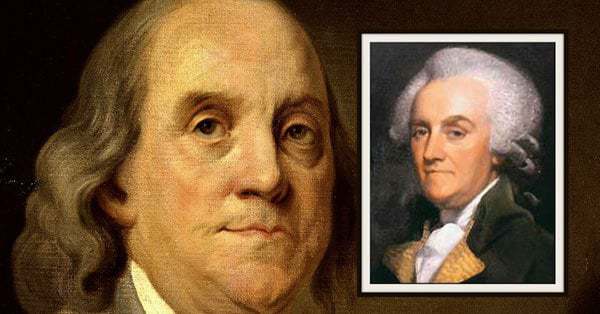Benjamin Franklin was probably one of our most famous founding fathers, but he had a few skeletons in his closet. His son William Franklin was an acknowledged Loyalist who engaged in activities for the British during the American Revolution. For this, our famous founding father’s son was exiled to England for the rest of his life. The American Revolution drove a wedge between father and son, and they never reconciled before Benjamin Franklin’s death in 1790.
Benjamin Franklin’s son William Franklin was born to an unknown mother in 1730. He was raised by Benjamin Franklin and his common-law wife, Deborah Read. Even though Benjamin was extremely secretive about who William’s biological mother was, William considered Deborah to be his mother. In 1746, at the age of 16, William fought in King George’s War with the Pennsylvania provincial troops. He was a good soldier, rising to the rank of captain in just two years.

As a young man, William Franklin enjoyed a close relationship with his father. In 1752, William helped Benjamin with his famous kite experiment. William was 21 at the time, even though he is mostly portrayed as a young child. After the war was over and his military service ended, William accompanied Benjamin on his political trips to England. Originally sent there by the Pennsylvania Assembly to gather support against the political influence of the Penn family, Benjamin met many influential people and made many strong political allies at this time. His son William was there at this very crucial time, and it probably influenced future activities in William’s life.
While accompanying his father on his trips abroad, William decided to pursue the study of law in England. While he was studying there in 1762, he fathered an illegitimate child named William Temple Franklin who was raised by a foster family. After finishing his training and becoming a lawyer, William and his father worked together in England to get land grants for what is now the midwestern United States. Benjamin was particularly close with the British Prime Minister Lord Bute, and he used his close relationship with the Prime Minister to get his son appointed to a post in the colonies.
Lord Bute appointed William to be the Royal Governor of New Jersey in 1763. William Franklin moved to the New Jersey colony to take up his new post with his new wife Elizabeth Downes, the daughter of a sugar baron from Barbados. One of William’s most significant acts as Royal Governor was that he established Queen’s College, now known as Rutgers University.
As the relationship between America and Britain became strained before the American Revolution, so did the relationship between William and his father. William was loyal to England, while Benjamin was a Patriot. Their disagreements became heated: Benjamin tried to get his son to join the Patriots, but William refused.

